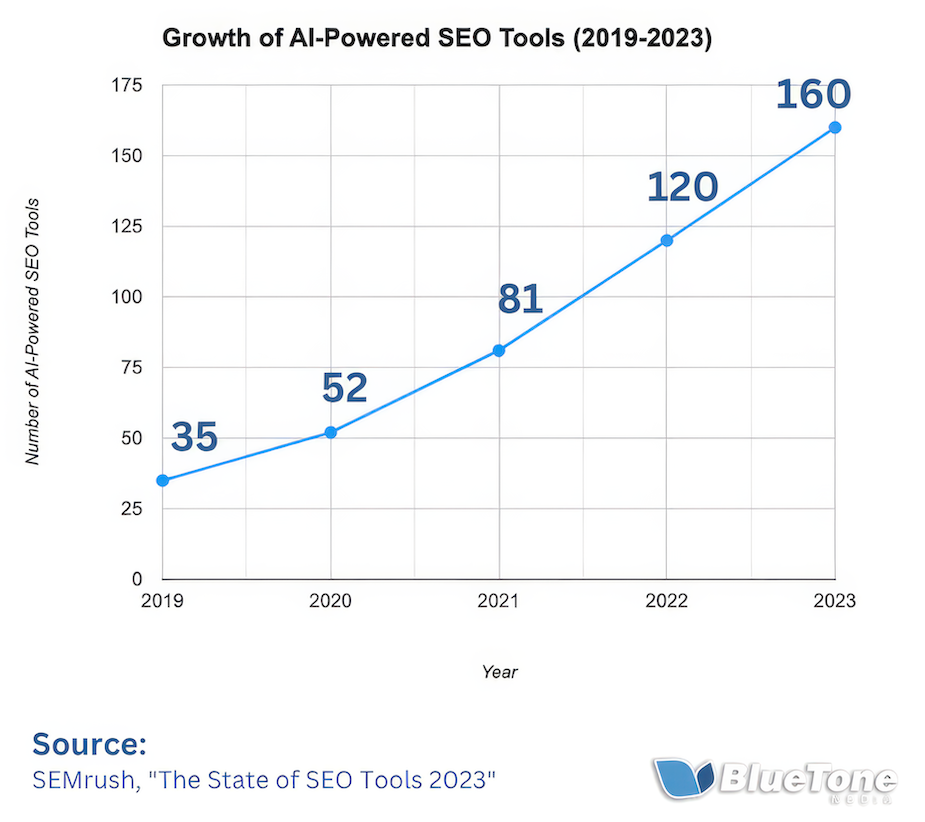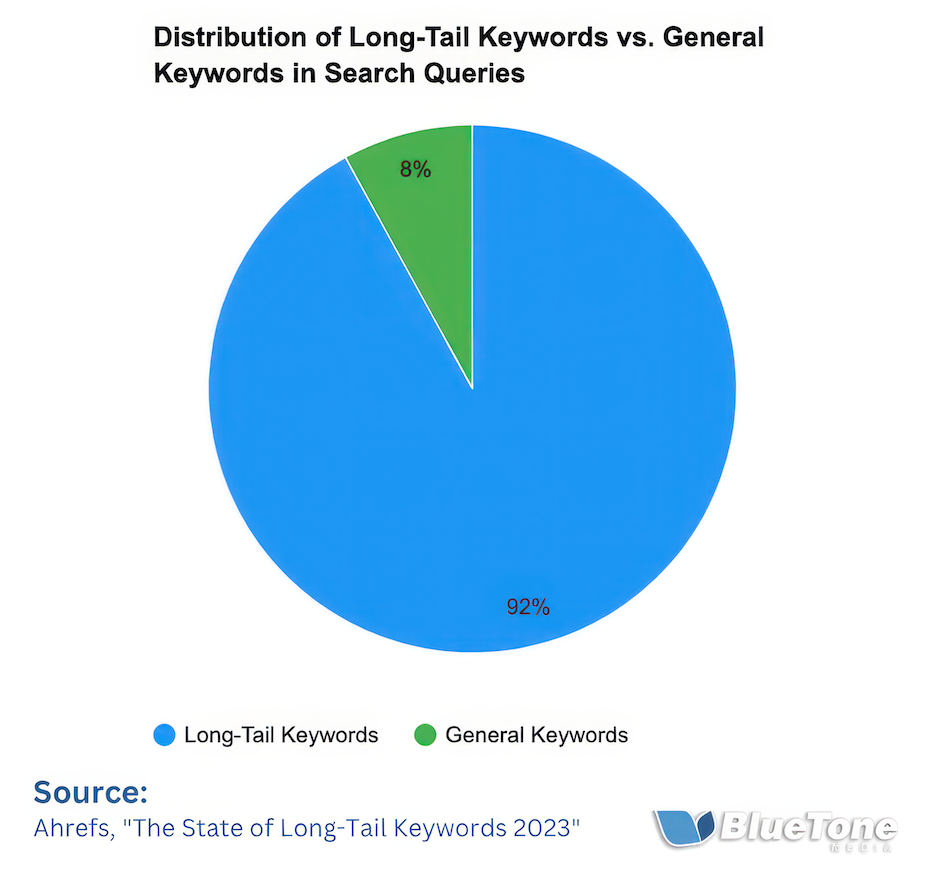5 New SEO Keyword Ideas to Boost Your Rankings in 2024 (Expert Insights)
By: Hayden Jarman

Hey there, small business owners!
As we step into 2024, the landscape of SEO continues to evolve, making it vital for small business owners to stay updated with the latest strategies for finding SEO keyword ideas. Understanding how to leverage new tools and trends can significantly boost your website's traffic and search engine rankings.
The best ways to get SEO keyword ideas in 2024 are 1) utilizing AI-powered SEO tools, 2) optimizing for featured snippets, 3) implementing long-tail SEO for niche websites, 4) embracing mobile-first SEO strategies, and 5) utilizing EAT guidelines for high-quality content.
Below, I’ll show you five innovative approaches to SEO keyword ideas in 2024, offering insights into tools like Google Keyword Planner and SEMrush Keyword Research.
Table of Contents:
- AI-Powered SEO Tools for 2024
- Optimizing for Featured Snippets
- Long-Tail SEO for Niche Websites
- Mobile-First SEO Strategies
- Utilizing EAT Guidelines for High-Quality Content
What Are the Most Effective SEO Keyword Ideas for 2024?
Key Takeaways for Your Business:
- Embrace the latest SEO trends to stay ahead in the digital race.
- Discover how AI, snippet optimization, long-tail keywords, mobile-first strategies, and EAT guidelines can transform your SEO approach.
- Utilize tools like Google Keyword Planner and SEMrush Keyword Research for deeper insights.
1) AI-Powered SEO Tools for 2024
The Rise of AI in SEO
Alright, let's talk about AI-powered SEO tools.
These are not just buzzwords; they're revolutionizing how we approach SEO. Tools like ChatGPT and Google Bard are like having a super-smart assistant who knows all about SEO (especially Google Bard, which is literally trained on current Google data).
These tools use AI to analyze data more accurately and efficiently, which is a game-changer for your SEO strategies.

Unique Features of AI-Powered Tools:
| Feature | Benefit |
| Predictive Analysis | Anticipate future trends and adjust your strategy accordingly. |
| Automated Audits | Get regular, detailed reports on your website's SEO health. |
| Keyword Optimization | Find the best keywords tailored to your niche. |
You can learn more about the importance of SEO audits and how they can benefit your business in our informative piece on why you need an SEO audit.
Integrating AI Tools into Your SEO Strategy
Now, you might be wondering, "How can I use these AI tools for my business?" Here are a few tips:
- Start with a clear goal: What do you want to achieve with your SEO? Increased traffic? Better rankings? Clear goals will guide your AI tool usage.
- Regularly check the AI insights: These tools provide ongoing analysis. Make it a habit to check and adjust your strategies based on their suggestions.
- Experiment and learn: Don't be afraid to try new keywords or content strategies based on AI recommendations. It's all about finding what works best for your unique business.
2) Optimizing for Featured Snippets
Understanding Featured Snippets
Featured snippets are like gold in the SEO world. They are the highlighted boxes you see at the top of Google search results, giving a quick answer to a search query.
Why are they important? Because they can significantly boost your website's visibility and click-through rates.
Tools like Google Keyword Planner and SEMrush Keyword Research can help you spot opportunities to land these coveted spots.
Key Elements of Featured Snippets:
- Concise answers: Google loves answers that are straight to the point.
- Relevant keywords: Use keywords that precisely match common search queries.
- Engaging format: Lists, tables, and bullet points often work well in snippets.
For more insights on optimizing your content, check out these On-Page SEO Tips for 2024.
Tips for Snippet Optimization
Let's break down how you can optimize your content for featured snippets:
- Identify snippet-worthy content: Look for questions commonly asked in your niche and provide clear, concise answers.
- Structure your content effectively: Use headings, lists, and tables to make it easier for Google to pull your content into a snippet.
- Monitor your performance: Keep an eye on your analytics to see what's working and what's not.
3) Long-Tail SEO for Niche Websites
The Power of Long-Tail Keywords
Long-tail keywords are like hidden gems.
They're more specific, less competitive, and incredibly effective for niche websites.
These keywords can attract more targeted traffic, leading to higher conversion rates. Tools like keyword generators are great for brainstorming these kinds of keywords.

Advantages of Long-Tail Keywords:
- Lower competition: They are less sought after by big players, giving you a better chance to rank.
- Higher relevance: They match specific search queries, making your content more relevant to your audience.
- Better conversion rates: Because they're so specific, they tend to attract visitors who are closer to making a purchase decision.
For more insights on keyword strategies, have a look at this detailed guide on SEO and PPC for small businesses.
Implementing Long-Tail Keywords
Here's how you can make the most of long-tail keywords:
- Research your niche: Understand the specific needs and search behaviors of your target audience.
- Use keyword tools: Leverage tools to find long-tail keywords that align with your audience's interests.
- Create tailored content: Develop content that addresses the specific needs and questions related to your long-tail keywords.
Long-Tail Keyword Impact:
| Metric | Impact |
| Traffic Quality | Increases with more targeted searches |
| Conversion Rates | Higher due to specific audience targeting |
4) Mobile-First SEO Strategies
Embracing Mobile-First Indexing
In today's world, mobile-friendliness isn't just a plus; it's a must.
Google's mobile-first indexing means that Google predominantly uses the mobile version of your website for indexing and ranking.
As a business owner, this shift emphasizes the importance of optimizing your website for mobile devices.
Importance of Mobile Optimization:
- Better User Experience: A mobile-friendly site ensures a positive experience for your audience.
- Improved Search Rankings: Mobile optimization is a key factor in Google's ranking algorithm.
- Increased Traffic: With more people using mobile devices for searches, a mobile-optimized site can drive more traffic.
For practical tips on enhancing your website’s mobile-friendliness, check out these vital insights into web design and SEO.
Mobile Optimization Best Practices
To make your website mobile-friendly, consider the following:
- Responsive Design: Ensure your site adjusts seamlessly to different screen sizes.
- Optimize Loading Speed: Mobile users expect quick loading times, so optimize images and reduce unnecessary code.
- Simplify Navigation: Make sure your website is easy to navigate on a smaller screen.
Mobile SEO Success Metrics:
| Metric | Description |
| Loading Speed | Faster page load times lead to better user engagement. |
| Mobile Usability | A user-friendly mobile interface enhances visitor retention. |
5) Utilizing EAT Guidelines for High-Quality Content
Google's EAT (Expertise, Authoritativeness, and Trustworthiness) guidelines are crucial for creating content that ranks well.
This is especially important for industries where credibility is key, like healthcare or finance.
By aligning your content with these guidelines, you can improve your website's authority and search engine rankings.
EAT Principles in Content Creation:
- Expertise: Showcase your knowledge and skills in your field.
- Authoritativeness: Build a reputation as a reliable source in your industry.
- Trustworthiness: Ensure your site is secure and your content is accurate and transparent.
For more on creating high-quality content, you might find this article on SEO and marketing for professionals quite enlightening.
Implementing EAT in Your Strategy
Here are some tips to incorporate EAT into your content strategy:
- Showcase Your Expertise: Share your knowledge and experience in your content.
- Cite Reliable Sources: Back up your claims with data from reputable sources.
- Focus on Quality: Prioritize well-written, informative, and user-focused content.
Impact of EAT on SEO:
| EAT Aspect | SEO Impact |
| Expertise | Increases content credibility and user trust. |
| Authoritativeness | Boosts domain authority and ranking potential. |
| Trustworthiness | Enhances user confidence and engagement. |
Final Thoughts
The digital marketing landscape is continuously evolving.
The key to success lies in staying informed and adaptable.
Whether it’s leveraging AI-powered tools, optimizing for mobile, or aligning with EAT guidelines, each strategy offers a unique opportunity to boost your website's performance and rankings.
- Stay Updated: The world of SEO is dynamic. Keep learning and adapting to new trends and tools.
- Implement Strategically: Apply these insights thoughtfully to your unique business needs.
- Monitor and Adjust: Regularly review your SEO performance and make necessary adjustments.
By embracing these strategies, you can significantly enhance your online presence and drive more traffic to your website.
Remember, SEO is a journey, not a destination. Keep exploring, optimizing, and growing.
For more in-depth insights into SEO strategies, don't miss out on this comprehensive guide on SEO localization, which can further elevate your SEO game.
That's it for now, folks! I hope these insights help you navigate the ever-changing world of SEO with confidence and success. If you ever need a refresher, just come back to this guide.
Happy optimizing!
Related Posts:
- Understanding Google’s Local Pack: How to Get Featured
- Google Business Profile FAQs: Everything You Need to Know
- The Best Google Ads Extensions to Boost Your Click-Through Rates
- How to Leverage Facebook Groups for Local Business Leads
- How to Use AI to Write Better Social Media Captions
- How to Optimize Google Reviews to Attract More Customers
- LinkedIn for B2B Marketing Success
- How to Conduct a Social Media Audit (w/ "Audit Readiness" Quiz!)
- Creating a Content Calendar for Consistent Posting
- The Importance of Mobile Optimization in 2024
- Data Privacy Regulations: What Marketers Need to Know
- The Role of Chatbots in Enhancing Customer Service
- SEO for Small Business: The Ultimate Guide to Getting Found Online
- The Role of Keyword Clustering in Modern SEO

